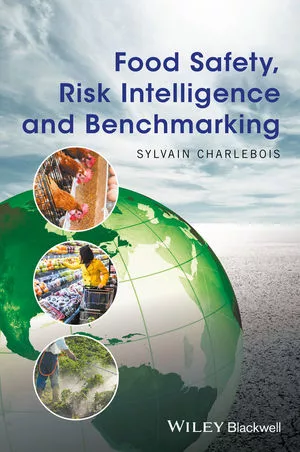Emerging Risk Identification in the Age of Social Media
In recent years, a recurring discussion within the food industry concerning the use of a processed ground beef product became national news. How? A blog post announcing the U.S. Department of Agriculture’s intent to purchase the product for use in school lunches led to an online petition at Change.org and subsequently elevated the discussion from a relative non-issue to national news. Over the course of three 3 months, one main manufacturer closed three of its facilities, another company was bankrupt, multiple lawsuits had been filed and a food product that had never been associated with incidence of foodborne illness had been demonized.
In 2013, another blog post advocating the removal of Yellow Dye No.’s 5 and 6 in a popular children’s food product led to more national media attention, followed by an outpouring of public support, ultimately resulting in the removal of those ingredients from some well-established and popular food products. While these two incidents involved different products, their progressions from benign to brand damaging were similar. Fueled by online dissent and propagated by social media, these serve as exemplars of how quickly a company can encounter a risk crisis.
Increasingly, consumers are becoming more aware of what goes into their food and how it’s produced. The results of the Ketchum Global Food 2020 Survey show how a large section of the social media-savvy public has the ability to promote controversial issues and ultimately drive the discourse that can potentially impact the food industry profoundly. The knowledge gained from these recent incidents supports the need for companies to assign more attention to assessing these nontraditional public opinion outlets and the impact they can have on their brands. Because of this impact potential, companies are looking for ways to collect and analyze this type of data in order to identify emerging enterprise risks, which will subsequently allow them to improve their risk management and risk communication responses.
We are living in the age of social media, where data and information management are some of the most valuable commodities for success and companies are realizing the power and speed at which the public’s perception can be influenced. Over the past 2 years, the focus on specific consumer products, the creation of a negative public perception and consequential brand damage in the absence of a food safety issue has rapidly become a common occurrence in this industry. So how can food companies adequately prepare to address these issues and respond quickly and efficiently?
Using emerging risk identification tools may be the answer for some in the food industry. For example, Leidos developed Digital Echo as a data mining tool for the intelligence community, but its application to the food industry is significant. Digital Echo is designed to efficiently search, collect, process, filter and analyze large amounts of unstructured data such as that found in blogs, websites and message boards and generate actionable intelligence. Using customizable enterprise risk management (ERM) tools, particularly those with the capability to perform sentiment analysis like Digital Echo, companies can efficiently combine open source data collection methods with human analytic support, ultimately crafting an effective mechanism for predicting enterprise-related issues and developing response plans to mitigate them.
By providing this type of information to ERM teams earlier, the company can then use those same social media outlets to preempt a controversy by proactively creating positive media attention through the release of position statements, educational materials or other messages. Effectively identifying emerging risks allows the industry to drive the discourse, not be driven by it.
In seeing sentiment analyses of social networking data being applied everywhere from Walmart to Wall Street, companies are finally understanding the degree to which the public’s perception can be influenced. And while no existing tool can provide a guarantee of future outcomes, Digital Echo can provide the information to help food companies proactively and effectively protect their brands and enterprises.
Looking for quick answers on food safety topics?
Try Ask FSM, our new smart AI search tool.
Ask FSM →
Adrienne M. Dunham is a veterinary public health scientist with Leidos Engineering.
Forrest M. Hillery is a risk analyst with Leidos Engineering.






